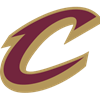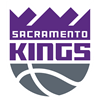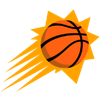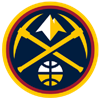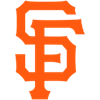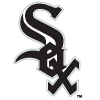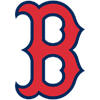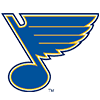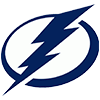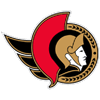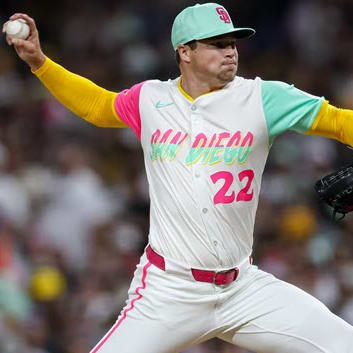We're back! Though, it seems like we never left. With drafts starting earlier each season, we thought it would be a good idea to gather the troops and post an early Top-300 Fantasy Baseball Rankings for 2024.
Thanks to James Anderson to get things started with his Super Early 2024 Top 300 Rankings used in a couple of early draft and hold leagues. Hat tip to Clay Link for getting the band back together, Erik Halterman for posting the piece, Jeff Erickson for taking some time away from football to add his early baseball thoughts.
The bulk of this piece will be a review of some of the hitters on which I am the most bullish. Next week, I'll discuss those on which I am the most bearish. Then I'll repeat the series with pitchers. It's always nice to have topics in the hopper this time of the year.
Before delving into some names, let's talk about the Roundtable from a big-picture perspective. Whenever I look at rankings, be it individual or in group fashion, I care more about the relative rankings than absolute. That is, I don't care that we have Bo Bichette as the 24th player. My focus is Jeff has him as SS-6, Clay ranks him SS-3, Erik at SS-8 and I have Bichette as SS-5. Furthermore, the five shortstops Jeff has ahead of Bichette are Bobby Witt, Trea Turner, Gunnar Henderson, Corey Seager and Francisco Lindor. Meanwhile, Erik ranks Witt, Turner,
We're back! Though, it seems like we never left. With drafts starting earlier each season, we thought it would be a good idea to gather the troops and post an early Top-300 Fantasy Baseball Rankings for 2024.
Thanks to James Anderson to get things started with his Super Early 2024 Top 300 Rankings used in a couple of early draft and hold leagues. Hat tip to Clay Link for getting the band back together, Erik Halterman for posting the piece, Jeff Erickson for taking some time away from football to add his early baseball thoughts.
The bulk of this piece will be a review of some of the hitters on which I am the most bullish. Next week, I'll discuss those on which I am the most bearish. Then I'll repeat the series with pitchers. It's always nice to have topics in the hopper this time of the year.
Before delving into some names, let's talk about the Roundtable from a big-picture perspective. Whenever I look at rankings, be it individual or in group fashion, I care more about the relative rankings than absolute. That is, I don't care that we have Bo Bichette as the 24th player. My focus is Jeff has him as SS-6, Clay ranks him SS-3, Erik at SS-8 and I have Bichette as SS-5. Furthermore, the five shortstops Jeff has ahead of Bichette are Bobby Witt, Trea Turner, Gunnar Henderson, Corey Seager and Francisco Lindor. Meanwhile, Erik ranks Witt, Turner, Seager, Elly De La Cruz and CJ Abrams, Lindor and Henderson before Bichette. In my mind, this is much more pertinent information than Bichette is SS-4 overall.
Another aspect to keep in mind is there isn't a one-size-fits-all presentation. Sure, we can frame this with 15-team, 5x5 rankings, but every draft room has its own cast of characters with each draft exhibiting its own personality. Where pitching gets drafted isn't always reflected in where it is ranked. Since this is a hitting piece, however, let's use catchers as an example instead. I rank the top tier of catchers in Round 6. If I want an elite backstop, and they're being drafted before Round 6, I need to ignore my rankings and take one earlier. Alternatively, I have a bunch landing in Rounds 10, 11 and 12. If this is my target tier, and some will make it to Rounds 13 and 14, I'll wait. This isn't groundbreaking; it's commonplace. However, sometimes when looking at static rankings, we forget they're a guideline and not a blueprint to follow.
With respect to my rankings, I base them off projected earnings. The caveat here is the relative rankings for hitters and pitchers depends on budget allocation. It's November, so we don't need to get too deep into these weeds, but in most auctions around 69 percent of the budget goes towards hitting. As such, I set my pricing model to a 69:31 split. However, the NFBC historically is in the 62:38 range for drafts and auctions. If the instructions were generating rankings for an NFBC league, I would have changed the specs of my little black box. Hmm, maybe that would be a nice Z-Files to follow the series already outlined.
With that as a backdrop, here are some batters I have ranked the highest.
| Player | Rank | Ave | ADP | ADP Rank | Todd | Jeff | Clay | Erik |
|---|---|---|---|---|---|---|---|---|
| Aaron Judge | 10 | 10.25 | 12.79 | 13 | 4 | 15 | 8 | 14 |
Chances are, the majority of this delta is playing time, though I may be a bit more aggressive with the skills as well. To that point, running my own version of the Steamer 600 where everyone is given 600 PA (plate appearances), Judge finishes on top, ahead of Ronald Acuna.
Currently, I am projecting 636 PA, three more than Judge garnered in 2021. In 2022 he collected 696, while he finished with 458 last season after doing his "Bump Bailey" impersonation. While the fictional character's ultimate demise paved the way for Roy Hobbs to play right field regularly, fortunately Judge only tore a ligament in his toe, but it cost him around 50 games.
In order to drop Judge to around No. 13, which is his ADP and around where Jeff and Erik rank him, I need to deduct 80 PA. That's a lot of wriggle room. I don't need to draft Judge fourth overall; I can wait. if I get him around 1.10 or 1.11, he can fall short of my projected playing time and still turn a profit.
The real question is if I'd take Judge at 1.04. There's a lot of risk there. Granted, risk is supposed to be reflected in the projection. Judge has averaged 595 PA over the last three seasons. Is that a better projection? It only drops him two spots to No. 6.
The bottom line is that drafting Judge is more about your risk profile than his expected production.
| Player | Rank | Ave | ADP | ADP Rank | Todd | Jeff | Clay | Erik |
|---|---|---|---|---|---|---|---|---|
| Ozzie Albies | 29 | 30.25 | 23.42 | 22 | 16 | 31 | 45 | 29 |
I usually battle-test my rankings with an early draft, often a magazine mock, but nowadays those are scant. A couple of First Pitch Arizona attendees were equipped with my early rankings and reported back. Even so, I have not done any drafts (yet) with my rankings, so I haven't been able to vet the outliers. The fact I am on Albies Island with respect to ADP and my site colleagues spurred a projection review, and after looking under the hood, I'm sticking to it.
My projected decimals are .267/.318/.482, which are worse than last season's .280/.335/.513 line. I gave Albies four more plate appearances than last season, but that's still 22 fewer than his 2021 level, so it's not unreasonable.
I don't factor in a position adjustment other than with catchers, so that's not it. I have Albies stealing three more bases than 2023, but that doesn't account for a discrepancy that large either. This points to a buying opportunity. I don't love getting a second baseman early in a draft, but it could signal a nice auction purchase.
| Player | Rank | Ave | ADP | ADP Rank | Todd | Jeff | Clay | Erik |
|---|---|---|---|---|---|---|---|---|
| Vladimir Guerrero | 32 | 31.25 | 33.05 | 31 | 19 | 38 | 34 | 34 |
Expected stats aren't perfect, but they can be helpful. In 2021 and 2021, Guerrero's Statcast xBA was within four points of his actual mark. Last season, his xBA was .291, compared to the .264 on the back of his baseball card. My projection system accounts for this, so my expected batting average is .284, which is a lot higher than his three-year average, especially since most systems weigh the most recent results more heavily.
Guerrero's slugging percentage followed a similar pattern.
There were some changes in Guerrero's underlying metrics, but not enough to account for the entirety of the drop in his numbers. His average exit velocity dipped 0.7 mph and his launch angle more than doubled to 10.5. That said, this is factored into the expected stats calculation.
The difference in expectations may be right or wrong, but I'm accounting for improvement. My colleagues may also be counting on a rebound, but perhaps in this new landscape, they're penalizing Guerrero for not contributing to the stolen base category (which is absolutely defensible).
| Player | Rank | Ave | ADP | ADP Rank | Todd | Jeff | Clay | Erik |
|---|---|---|---|---|---|---|---|---|
| Paul Goldschmidt | 49 | 48.5 | 72.89 | 74 | 22 | 64 | 41 | 67 |
YIKES! As opposed to Albies, where I didn't make any changes, I have adjusted Goldschmidt, which will be reflected in the next update. He'll land in Clay's territory, which is still rosier than Jeff, Erik, and the NFBC. It's not surprising Goldschmidt is much lower on the NFBC rankings. There is no doubt more pitchers rank ahead of him, both starters and closers. Not to mention, the NFBC favors upside over boring.
Goldschmidt is approaching his twilight years, but his skills are showing no signs of degradation. In fact, he hit the ball harder last season than the prior campaign. I'll happily split the difference and take Goldschmidt in the fourth round.
| Player | Rank | Ave | ADP | ADP Rank | Todd | Jeff | Clay | Erik |
|---|---|---|---|---|---|---|---|---|
| Matt McLain | 51 | 55.75 | 67.79 | 65 | 31 | 58 | 81 | 53 |
This is interesting, since Jeff and Clay are unabashed Reds fans, and they're more bearish than the NFBC. Again though, the ranks can't be compared apples to apples; it's better to check out where McLain lands among shortstops, since I have fewer pitchers ranked ahead of McLain.
| Todd | 7 |
| Erik | 9 |
| NFBC | 9 |
| Jeff | 10 |
| Clay | 10 |
I'm still the most optimistic. Is it warranted?
Let's start with 655 PA. That's around 146 games, hitting in the upper third of the Reds lineup. Last year, McLain batted second 57 times, he hit third on 21 occasions while batting seventh once. The playing time seems plausible.
Prorating last season's homers and steals, my 2024 expectation is for McLain to produce at the same pace, but I regressed his .385 BABIP and increased his strikeout rate, so his average drops from last year's level. I don't see anything egregious in the outputs, so I'm trusting my numbers.
| Player | Rank | Ave | ADP | ADP Rank | Todd | Jeff | Clay | Erik |
|---|---|---|---|---|---|---|---|---|
| Christian Encarnacion-Strand | 124 | 135.25 | 139.37 | 133 | 42 | 108 | 244 | 147 |
DOUBLE YIKES! This is clearly too optimistic, and quite frankly something I should have caught before going live. The reason is that with only 63 MLB games under his belt, Encarnacion-Strand's projection is being driven by MLE (major-league equivalency) and even though they calm down his minor-league production, they're not perfect and often require some manual override. The problem is, that produces results that are mostly subjective, but a .290/.362/.551 line will get me canceled as a fantasy baseball influencer. Well, calling myself a fantasy baseball influencer is grounds for being cancelled, but I digress.
With a tweak here, and a little nudge there, I'll have Encarnacion-Strand in Jeff's neighborhood when the next update is posted. For what it's worth, the rank assumes he's batting cleanup for 122 games, which feels plausible.
| Player | Rank | Ave | ADP | ADP Rank | Todd | Jeff | Clay | Erik |
|---|---|---|---|---|---|---|---|---|
| Teoscar Hernandez | 110 | 105.75 | 145.11 | 143 | 50 | 95 | 133 | 145 |
There are two elements at play here. The first is playing time. Here is a look at Hernandez's plate appearances over the prior three seasons:
| PROJ | 651 |
| 2023 | 678 |
| 2022 | 535 |
| 2021 | 595 |
Hernandez's previous high was the 595 trips to the dish in 2021. As such, his two highest totals have occurred in the past three years. The average of the three campaigns is 603 PA. Applying my three-year weighted average yields 617 PA. Maybe 651 PA is too aggressive.
Complicating that calculation is that Hernandez is a free agent, so his destination will help fine-tune his playing time. His defense was league average this season but has been below average for most of his career. Will he DH? What is his competition? Where will he hit in the lineup?
The bigger factor is that T-Mobile Park crushes right-handed power, though it's neutral for hits. By the numbers, his home venue cost Hernandez three homers in 2023, along with the associated production. In addition, Hernandez fell short of expected homers in 2022 while with the Blue Jays. This gets factored in, and since the weighted average is heavily tilted towards the most recent seasons, the neutral (free agent) projection could add two to three homers with around 10 more runs and 10 more RBI compared to the straight weighted average without correcting for the environment.
Even so, I dropped Hernandez's playing time to 630 PA, and his rank fell around 15 spots, which is still the most bullish of the group. Let's see where he lands before calling it a day.
| Player | Rank | Ave | ADP | ADP Rank | Todd | Jeff | Clay | Erik |
|---|---|---|---|---|---|---|---|---|
| Andres Gimenez | 103 | 102 | 137.42 | 128 | 52 | 126 | 141 | 89 |
I suspect this is my brethren, and the NFBC, not wanting to invest a fourth or fifth round pick on a player whose primary contribution is steals, especially since there's some risk in him matching last season's power and batting average. That said, Gimenez's expected stats sync with his actual ones.
There is also a playing time component. Gimenez appeared in 153 games, so he's durable. However, he hit between fifth and seventh in 122 games. Last season, Gimenez accrued 616 PA; I have him with 643 PA, suggesting he frequently hits higher. This could be too much of a leap of faith. It's best to temper expectations until we see the rest of the Guardians lineup.
Gimenez has been reduced to 627 PA, which can be achieved simply by Cleveland scoring more runs than last year. His new ranking will be 15 spots lower, which is still way ahead of the group. That's fine; I can wait and get some speed, with upside if Gimenez indeed moves up the order.
| Player | Rank | Ave | ADP | ADP Rank | Todd | Jeff | Clay | Erik |
|---|---|---|---|---|---|---|---|---|
| Ezequiel Tovar | 177 | 184.75 | 200.21 | 198 | 56 | 223 | 302 | 158 |
TRIPLE YIKES! There is a lot of nerdy stuff influencing this clearly overly aggressive ranking. There is an age component to MLE, and Tovar crushed Double-A as a 20-year-old, and then that translation gets boosted by Coors Field. This is another case of needing to manually override.
The thing is, Tovar is still young, and appears to have the shortstop gig in Colorado locked up, and that's after considering how the Rockies' brass treats young players. The best I can do is push him into the 130 range. His floor is around .255-15-15 with a chance to go 20/20.
| Player | Rank | Ave | ADP | ADP Rank | Todd | Jeff | Clay | Erik |
|---|---|---|---|---|---|---|---|---|
| Steven Kwan | 180 | 176 | 237.74 | 232 | 69 | 219 | 145 | 271 |
YOWZERS! I've exhausted my yikes quota. In a vacuum, does .286 with seven homers and 18 bags seem to hopeful for Kwan? Maybe the homers are a tad high, but the discrepancy here is all about valuation and game theory. For what it's worth, I cut the projection by two dingers, but that only lowers Kwan about 15 spots, which is still yowzers territory.
Given that valuation is intrinsically flawed, the market values batting average and steals less than conventional valuation. Kwan scored over 90 runs last season, so he's more than just a source of average and speed, but the larger point is that the market is unwilling to pay for his primary contributions.
This is fine, and speaks to how I approach rankings. The formulaic ranking is much more favorable to Kwan than where most (including your truly) would draft him. Maybe I need to rethink my approach, but having "what he's truly worth" as the starting point and then adjusting from there has been my philosophy.
That's 10 players on whom I'm the most Pollyannaish. Here are some others. If you'd like an explanation on them, or anyone for that matter, please post in the comments, and I'll be happy to oblige.
James Outman
Yainer Diaz
Amed Rosario
Alec Bohm
Johan Rojas
Daulton Varsho
Josh Bell
Jarren Duran
Bryan De La Cruz






